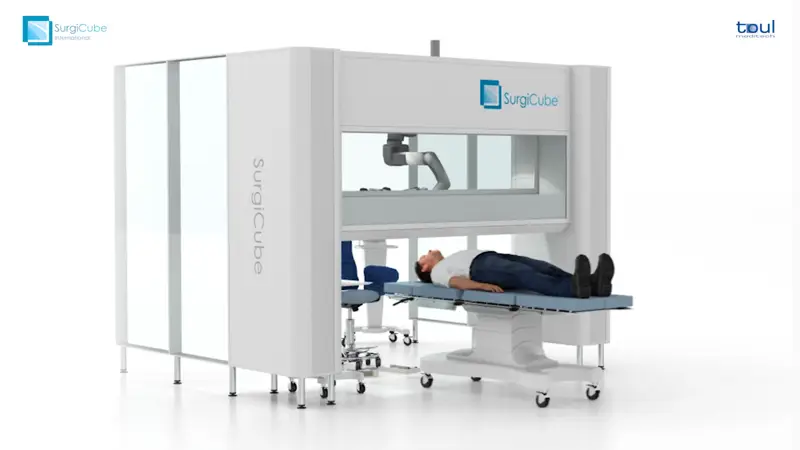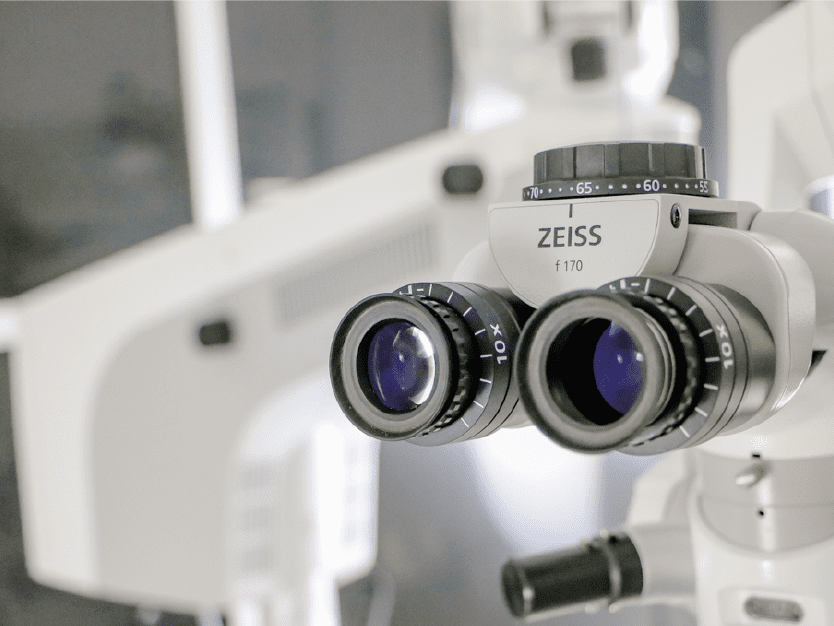In our Birmingham facility, we have designed a unique and specialized procedural wing, custom-built to enable minimally invasive surgical techniques, including for cataract extraction, lens replacement / repositioning, corneal transplantation, and other operations.
This procedural wing features some of the most modern and advanced ophthalmic technology anywhere in the world, including devices that are not available anywhere else in the United States (for example, the SurgiCube).
Why in-office surgery?
The specialized procedural wing of our office may provide safer, more controlled, and more comfortable environment for micro-invasive procedures compared to a traditional hospital operating room.
Familiarity and Comfort
For “in-office” procedures, the doctors and staff are the same professionals who examined you in clinic, to providing a comforting and familiar presence. You are permitted you wear normal clothes, eat breakfast, and bring your family. If you’d like, relaxing medications are available to ease any nervous anxiety. With your permission, your family may be permitted to watch your operation on a video broadcast. Your total time in our facility, from the time you enter to the time you leave, usually minimal (typically less than 2 hours).
Highly Specialized Technology
The technology available, and the techniques which are possible, within our office space are highly specialized, and in many cases, not available anywhere else in the United States. For example, nowhere else in the country is in-office corneal transplantation offered, or possible. We are the only site in the country currently performing CAIRS implantation for patients with keratoconus and post-LASIK ectasia, and likewise the only site in the country with access to the SurgiCube.
Safety
Many older surgical procedures require a hospital operating room environment because they tend to be lengthier and entail greater risks. However, since our typical procedures involve newer, micro-invasive techniques, they may be performed within the dedicated procedural wing of our specialized Birmingham clinic.
Of special note, our procedural wing is built around SurgiCube technology (a modern platform designed for ultra-clean microsurgical procedures). This technology is currently available nowhere else in the United States. As a result, our procedural spaces are the most sterile operating environments in the world, with a uniquely low risk for postoperative infection.
In-Office Surgery Frequently Asked Questions
Am I candidate for in-office surgery?
For our most common procedures, a formal hospital theatre is rarely required for medical reasons. The most common reason why you might be unable to undergo in-office surgery would relate to limitations placed by your insurance company. If so, your procedure may take place in a conventional hospital operating room, or (in some cases), you may choose to pay out-of-pocket for your procedure to be performed in-office, instead.
What are the costs associated with in-office surgery?
In-office surgery is frequently covered by medical insurance, so for many operations, there are no additional costs. For example, for patients receiving most forms of corneal transplantation (DMEK, DSAEK, Bowman layer transplantation, Anterior Lamellar and Penetrating keratoplasty), there is no additional fee.
For patients undergoing cataract surgery, you can expect for your insurance company to pay for some of your procedure, but there are charges that insurance typically does not cover. The cost, in addition to insurance, is $1875 per eye, which can be paid ahead of surgery or in installments of approximately $100 per month through CareCredit. This fee includes the cost of specialized testing, your custom lens fee and the correction of your astigmatism. Surgical costs must be paid or financed at least 8 days before surgery. The only time there is any additional charge is if your doctor recommends and you choose to receive a multifocal lens, which reduces your dependence on glasses at all distances. Parker Cornea offers these lenses to patients without any markup. The additional cost is $1000 per eye.
Some procedures we offer are considered “refractive” and therefore, not covered by any medical insurance. These include refractive lens exchange, suture-less mini-transplantation (also known as CAIRS) for keratoconus, pinhole pupilloplasty, and phakic intraocular lens implantation.






